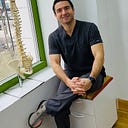A Simple — and More Involved — Method for Calculating Biological Age
How old are you really?
To avoid awkward situations, or adhere to social norms, most adults are rarely asked: How old are you? Unless of course a child is asking; blunt questions are their forte.
Depending on your perspective, age can be many things: Just a number, a state of mind, or a social construct. Some of us make a concerted effort to conceal it; coloring grey hair, applying makeup, lotions, or serums. And if this level of artistry fails to turn back the clock far enough, there’s always injections or surgery.
Age, the chronological version anyway, is fixed. We all have an unwavering timestamp of when we were born. Our biological age however, does vary.
We can appear younger (or older) depending on genetics, diet, exercise, and a host of other lifestyle factors; all of which play a role in not only physical appearance, but physiological health. Whether you smoke, get sufficient sleep, have a positive disposition, or fulfilling relationships, will all factor into determining biological age.
Unlike chronological age, biological age presents a number more in line with overall health. Various labs have developed formulas, identified biomarkers, and physical features to calculate this number. Here’s how they…
